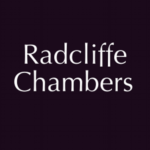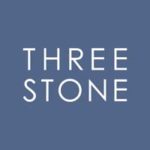Continue reading "Trusts: Breaking the blank"
Trusts: Breaking the blank

The deed was intended to appoint a life interest in the assets not attracting IHT relief to the deceased’s widow, the first defendant. The interest so appointed would then qualify for the spousal exemption. Due to the wording of the deed however it appointed an interest in all of the trust assets, not merely those which did not qualify for IHT relief.
The claim was issued for rectification of the deed. The claim was adjourned with directions at the first hearing, the Master expressing the view that the evidence was insufficient to sustain the rectification claim. Further evidence ...
By his will, the late Robert Simcock created a trust over the sum of £200,000, under which his wife Catherine was to be the life tenant. Subject to that, the capital and income of that trust was to be held on the terms of a discretionary trust of residue also created by the will, the objects of which were Catherine, and Robert’s children and remoter issue.
Solicitors acting for the family determined that only a portion of Robert’s estate would benefit from Agricultural Property Relief (APR) and Business Property Relief (BPR), with the consequence that, absent an appointment from t...
The First Defendant sought to rectify two declarations of trust entered into by the Claimant and the deceased husband of the First Defendant (“Mr Saundry”) in 2006 and 2009. The trusts arose out of a residential property business operated by Mr Saundry and the deceased husband of the Claimant (“Mr Price”).
Both of the declarations of trust related to a large number of properties, which were legally held in Mr Saundry’s sole name, but according to the declarations of trust were beneficially owned as tenants in common in equal shares by Mr Saundry and the Claimant.
The 2006 d...
The claim was brought to rectify two deeds of revocation and appointment made in 2008 and 2014, or alternatively to rescind them on the grounds of mistake.
Each of the settlor’s adult children had an interest in possession in a one sixth share of the trust fund. In 2004, in order to ensure that no inheritance tax was payable upon their one sixth share of the trust fund as a result of their deaths, the trustees appointed successive life interests for the spouses of two of these children, Michael and Joanna. Unfortunately, both Michael and Joanna’s marriages ended in divorce. The tr...
A & B were the current trustees of a settlement known as the Children’s Trust dated 21 March 2000. They were, with C, the current trustees of a settlement known as the M Trust dated 7 December 2004 (together the ‘Settlements’). A was the settlor of the settlements. D, E & F were his three minor children. G was joined in as a person appointed to represent a class of unborn beneficiaries. The settlements were drafted to qualify as accumulation and maintenance trusts within the requirements of Section 71 of the Inheritance Tax Act 1984 (‘1984 Act’). Both made provision for a class o...

Continue reading "Trusts: Breaking the blank"
In January 1995 Mr Donald Oatley, his wife Mrs Patricia Oatley, their three sons Andrew, Martin and Michael (the three claimants), and a solicitor, Mr Boyd, signed a deed of settlement. The beneficiaries were the spouses and issue of the claimants. Mrs Oatley died in 2002. Mr Oatley contracted cancer in 2006 and died in January 2007.
The Oatleys own a farming company with 4,333 shares owned by each claimant and 13,001 by the settlement. In 1985 Mr and Mrs Oatley created two discretionary trusts for some of their shares of the company, with the beneficiaries being their issue and ...

Continue reading "Rectification: A case of doubt"